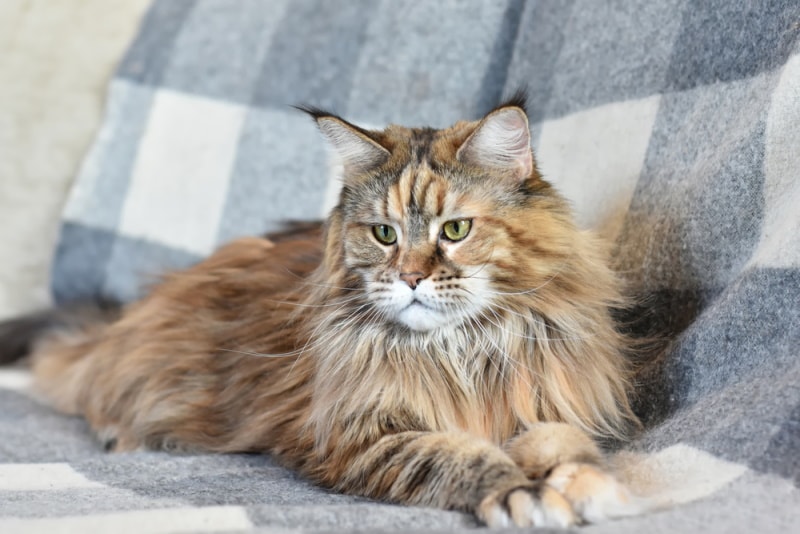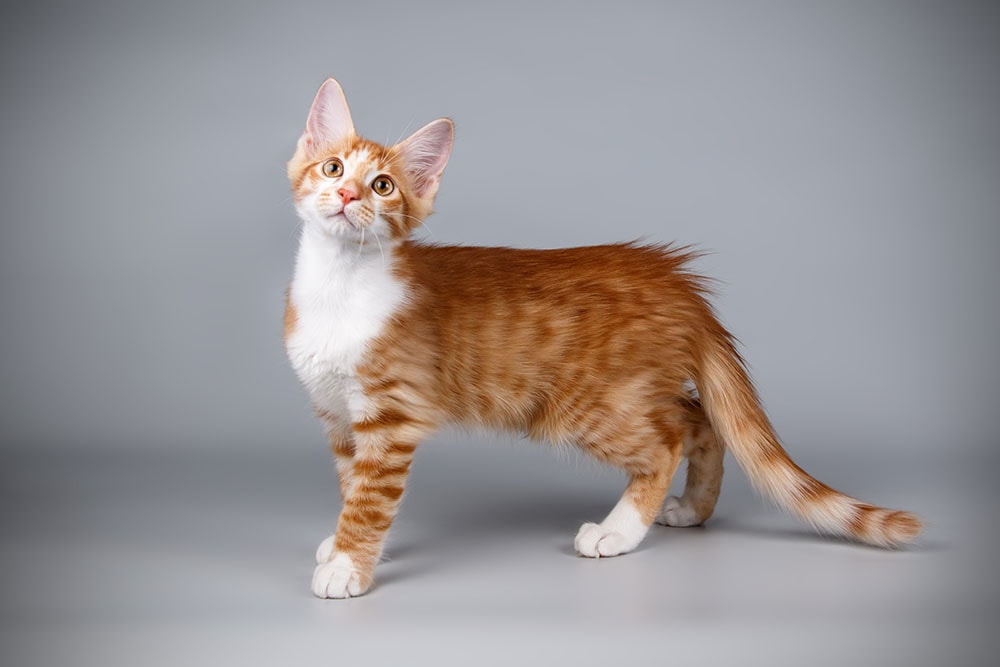Why Do Cats Like Bathtubs? 10 Vet-Reviewed Reasons

Updated on
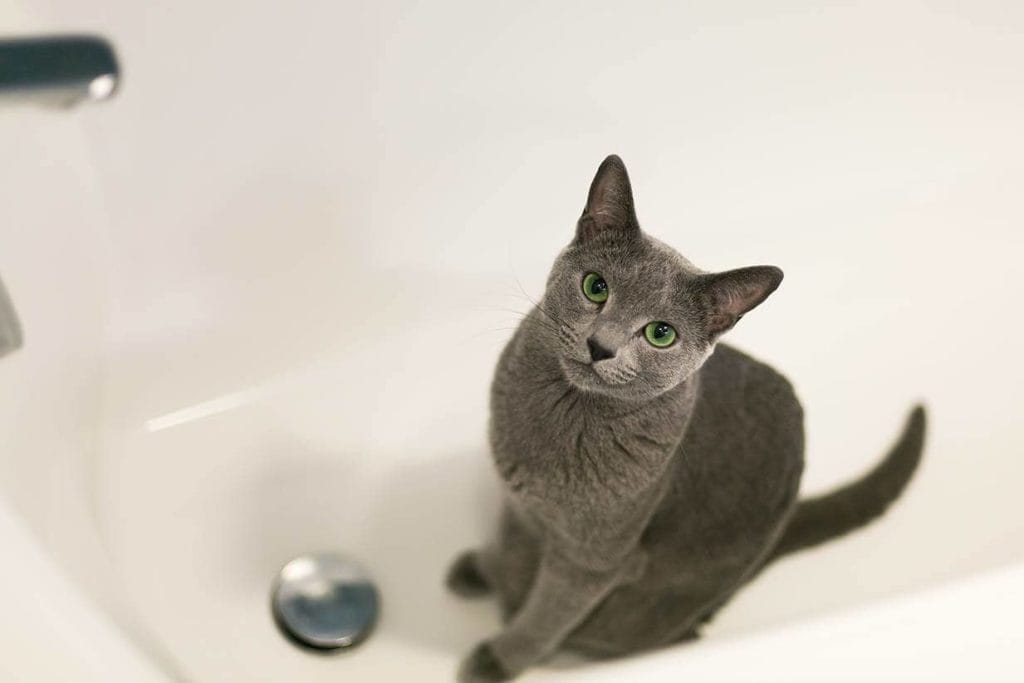
Cats are peculiar creatures. They have their own minds and habits that us humans may never understand. It is well known that most cats dislike water, so we may assume that cats would avoid places where water is present.
We humans can enjoy a nice relaxing bath in the tub, while most cats prefer to stay away from the water. But in some cases, you might just find your cat spending a lot of time around the bathtub!
Here, we explore 10 reasons why some cats like bathtubs!
Always be extra mindful of your cat’s whereabouts in the bathroom, if this is where your washing and drying appliances are kept. Cats are notorious for snuggling on warm clothes, and they may even enter the washing machine or the dryer. If these appliances are started with the cat still inside, this will lead to fatal injuries to your kitty. Keep the appliances closed and double check the cat is not there, when starting the washing or drying cycles.
The 10 Reasons Why Some Cats Like Bathtubs
1. A Comfortable Space to Rest
The bathtub is a smooth surface that can be comfortable to some cats. It is a stable and compact space that is easy to get in and out of, especially for the agile cat. This environment can be appealing to cats, providing them with a comfortable space to rest and play! Unless it’s wet, in which case they will do their best to avoid it altogether.
2. Privacy and Security
Aside from being a comfortable space, the bathtub can provide privacy for your cat. Cats are territorial creatures, so they put much importance on their personal space. The location of the bathtub within the bathroom, along with the enclosed and compact shape of the bathtub can provide the privacy and security your cat needs!
In the house, the bathroom and the bathtub are rooms and structures that are the least likely to be rearranged. The isolated nature of the bathtub and bathroom also provides a safe haven for your cat, especially if they’re experiencing stress and anxiety. Changes in the house, rearrangements, and strangers can cause your cat to be stressed out—and the bathtub may be their go-to area to calm down.

3. Curiosity
Cats are curious and intelligent animals. They are naturally inclined to explore their homes, including the more isolated and private bathrooms! Bathrooms typically have their doors closed and bathtubs have their curtains, which can easily pique any cat’s curiosity. If there is something they do not know, most cats will want to learn—such as finding out what is behind the door or the curtain. This same curiosity towards the closed door and curtain may develop into a fondness for the bathtub!
4. Scent
Cats have sensitive smells. They have 45–80 million smell receptors, or even up to 200 million, which is close to 14 times more than a human’s! Most bathtub and bathroom surfaces are made of porcelain or enamel, which can easily retain various scents. Cats can be attracted to the lingering scent of the various cleaning products previously used in the bathroom, which is why you may find your cat hanging around the bathtub often. However, make sure none are applied on the surface when your cat is around, and that they are completely wiped off, as cats will step in them and then lick them off their paws while grooming. Many of these substances are quite harmful for cats.
In addition, cats may also pick up the scent of their owner on the surface of the bathtub. This makes the bathtub a comfortable spot to rest because of the familiar scent.
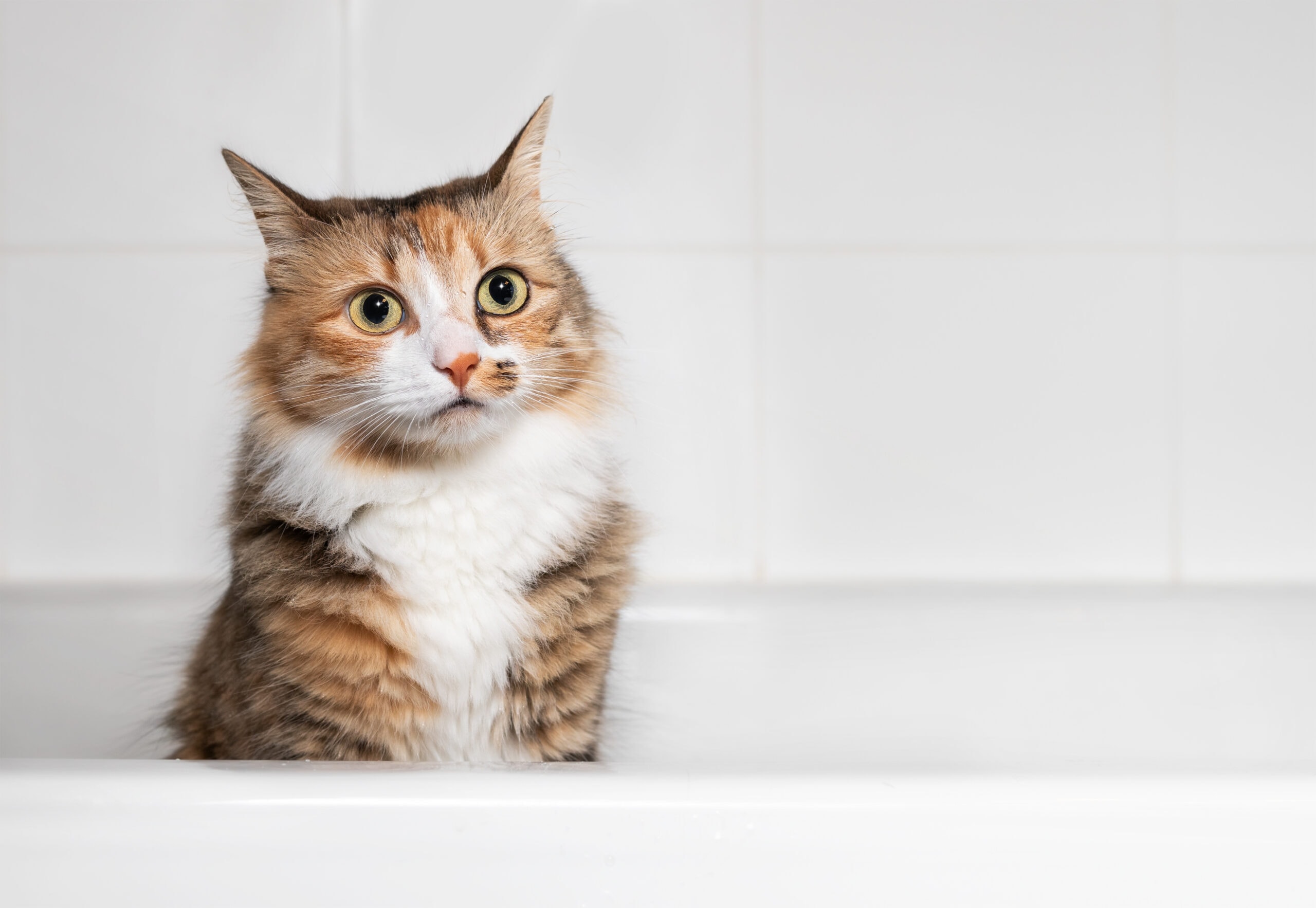
5. Routine
Cats are also creatures of habit. Some cats can easily stress out if there is any deviation from their daily routine. With that said, they can also easily pick up on their owner’s routines. They can pick up on habits and daily schedules, which may be associated with the bathtub.
Your cat may enter the bathtub to wait for you since they know you are taking a bath or brushing your teeth during a certain time. They can also associate your bathroom use with feeding time, say if you typically prepare food after using the bathroom!
6. They Associate the Space With You
From routine, habits, and familiar scents, your cat may simply associate the bathtub space with you! There may be a chance that they miss you if you’ve been away for a while, and the bathtub may give them a sense of security and comfort.
They can also use this to get attention and show affection, staying in the bathtub while you use the sink or the toilet. Many cats enjoy the company of their humans and can follow them around for everything they do, including using the bathroom! While you do your business in the bathroom, the bathtub may just be their preferred spot as they keep you company.
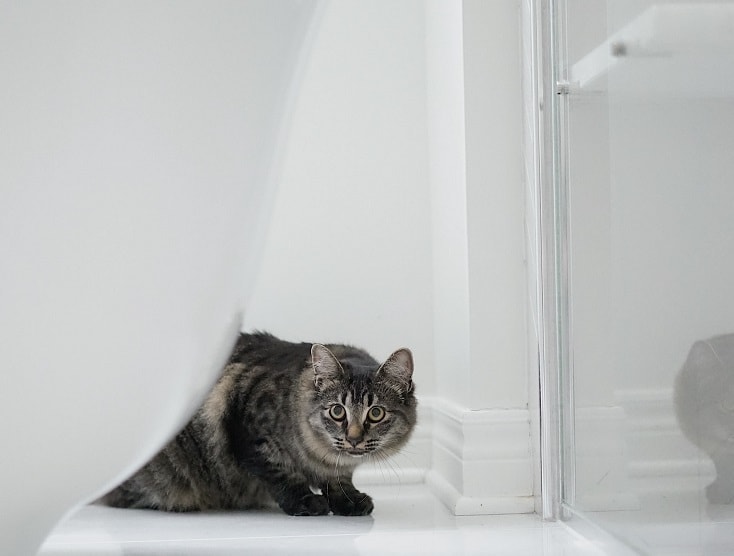
7. They Are Thirsty
While your cat may not enjoy the water and getting wet, they still need to drink. You may find your cat going to the tub to lick the water droplets in the tub. They might find the falling water droplets on the walls of the bathtub and the dripping faucet more intriguing than their usual water bowl.
Cats aren’t heavy water drinkers, so this may be enough to keep them hydrated. They can also find more excitement in waiting for a drop to fall from the faucet, keeping them entertained at the same time, as they love moving objects and water in motion!
However, cats that are drinking excessively may be spending more time in the bathroom and the bathtub than usual. Or they could be feeling unwell, and this is the most appropriate place to hide. Excess thirst in cats may be caused by various ailments, such as diabetes, kidney disease, dehydration due to gastroenteritis, and many more.
It’s important to get your cat checked out by the vet as soon as possible, if there are any changes in their behavior, drinking, eating, urination, or defecation habits, no matter how subtle they are. This is usually an indication of an underlying health issue.
8. They Are Water Babies!
Yes, most cats aren’t fond of water, but some cats are! Cat breeds such as the Maine Coon and the Abyssinian are actually quite fond of water, so you may find them waiting by the tub simply because they’re intrigued and fascinated by the water! They enjoy splashing around and watching the water drip out of the faucet and down the walls of the bathtub. If your cat is predisposed to enjoying the water, expect that they may spend a lot of time by the bathtub!
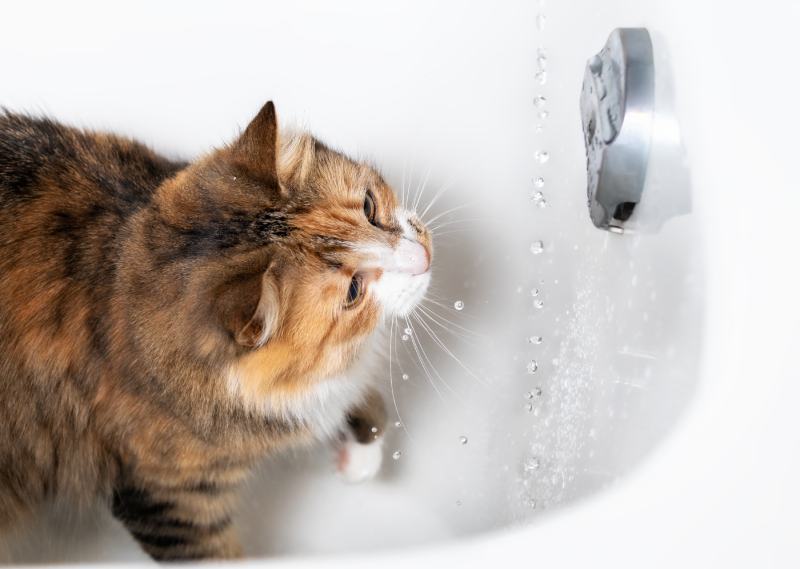
9. A Place to Cool Off
The smooth porcelain surface of the bathtub can provide a cool surface for your cat, especially during the summer. On hotter days, you might find your cat cooling off in the bathtub.
10. A Place for Warmth
In contrast, the porcelain surface of the bathtub can also stay warm during the colder seasons. The bathtub can be a place where your cat can find warmth and comfort, depending on the season and temperature at home!
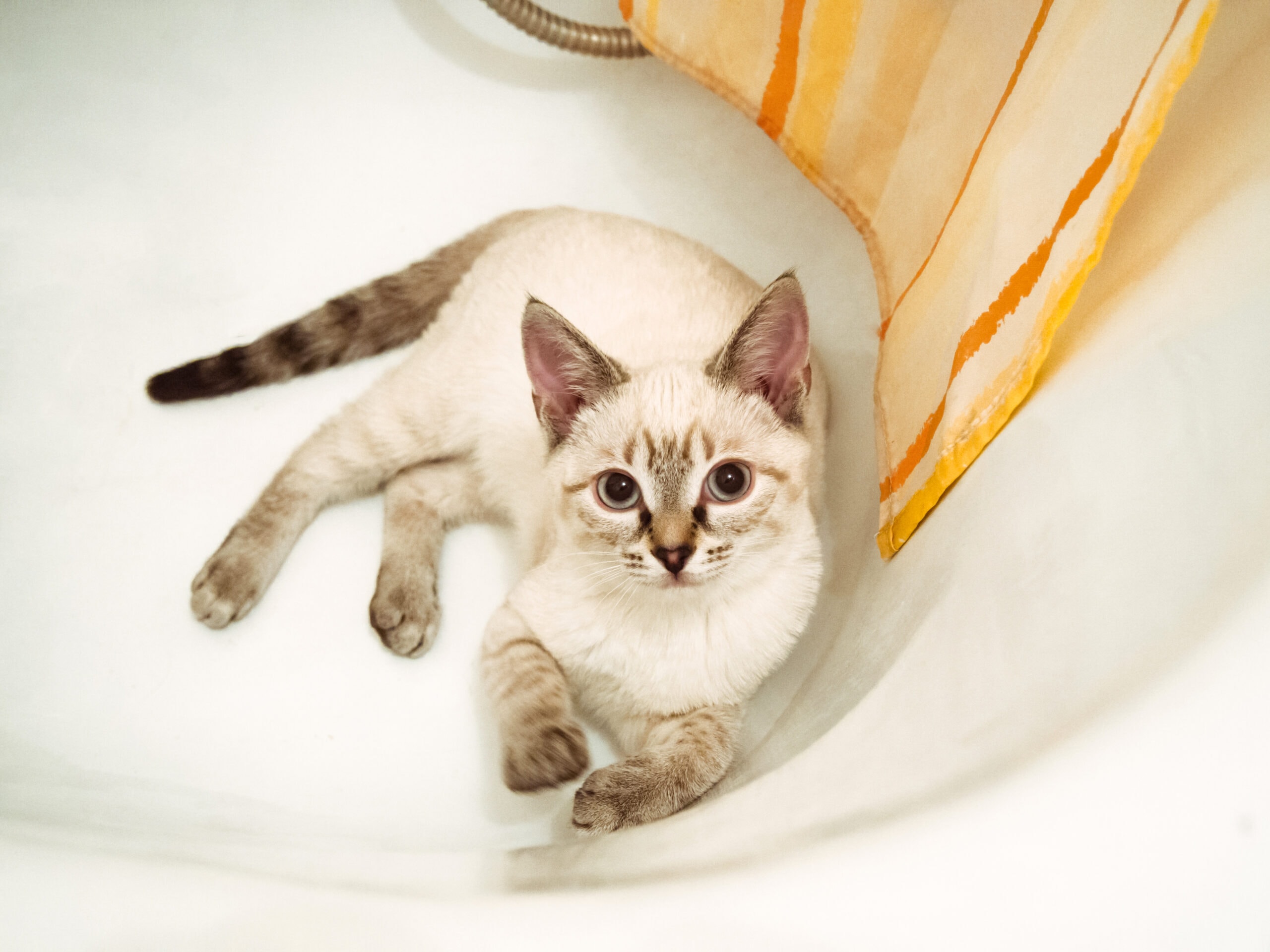
Conclusion
Cats are not usually fond of water and generally tend to avoid places where they may potentially get wet. While this is well-known, you may find that some cats enjoy hanging out by the bathtub! Bathtubs can provide a safe space for cats to comfortably rest, or a fun place for curious kitties to play in. Whether they follow you to the bathroom or simply enjoy the water, the feline mind truly works in strange ways, which only adds to their charm!
On the other hand, if your cat is spending more time in the bathroom or the bathtub than they used to, or you have noticed changes in their behavior, such as excess drinking, reduced appetite, or changes in urination, this may often indicate an underlying health problem and requires veterinary attention.
Featured Image Credit: Irina Borodovskaya, Shutterstock


